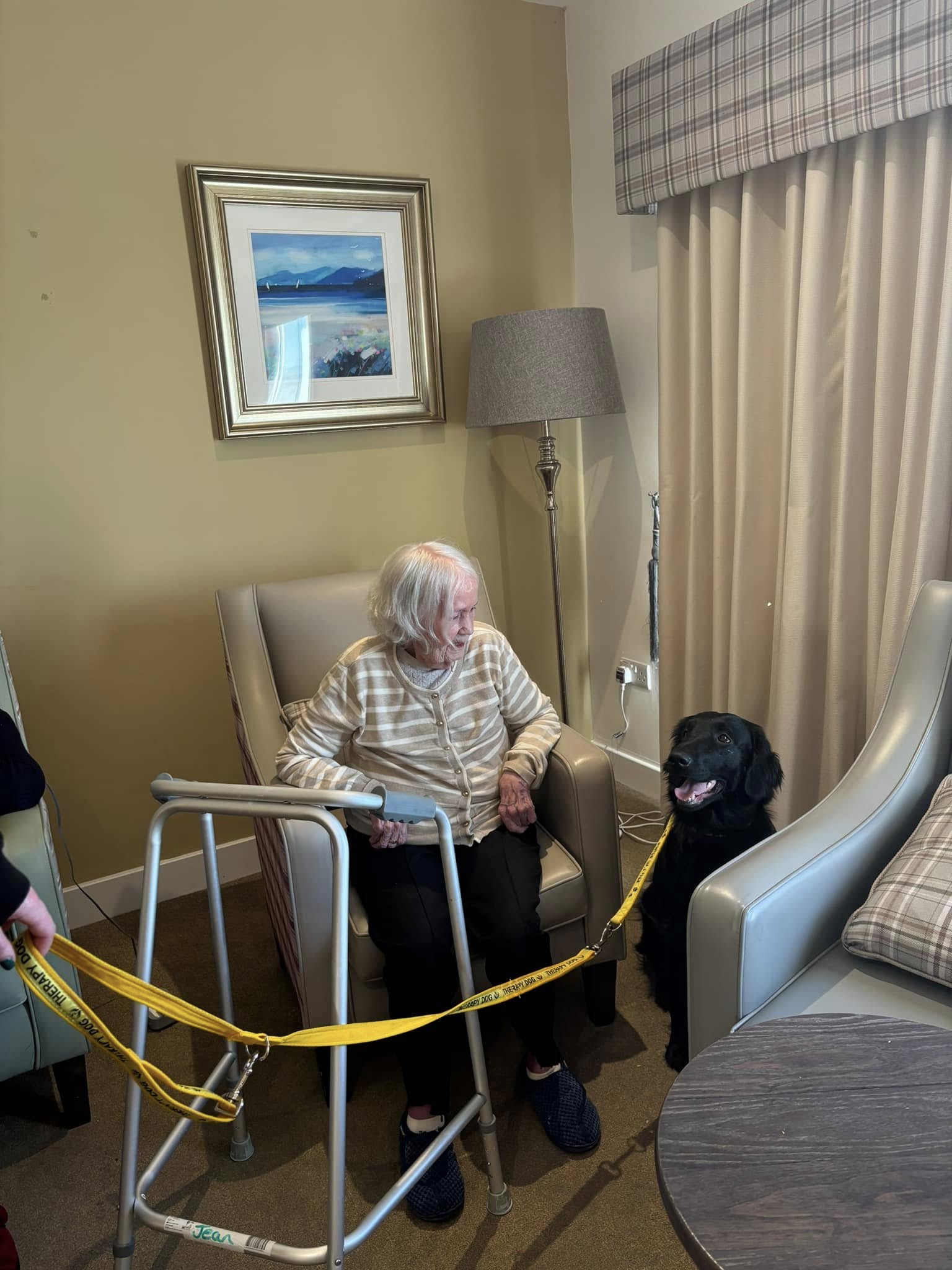Dementia Care Advice for Families

When someone you love receives a dementia diagnosis, it can feel overwhelming. Whether it’s Alzheimer’s disease, vascular dementia, or another type, the diagnosis brings a lot of uncertainty – not just for the individual, but also for their family and friends.
Dementia care is all about providing thoughtful, tailored support to help people live well with the condition. This might include help with everyday tasks like washing and dressing, support to stay socially connected, and access to appropriate healthcare. But more than anything, it’s about understanding the person behind the diagnosis and helping them to maintain their sense of self.
Different types of dementia affect people in different ways, which is why it’s so important to understand the nature of the condition. With the right knowledge and the right support in place, it’s absolutely possible to create a safe, supportive environment where someone with dementia can continue to live with dignity and purpose.
Managing Health Conditions
Dementia often comes hand in hand with other health concerns. Many people living with dementia also have conditions such as diabetes, heart disease, high blood pressure or a history of stroke. These additional needs can sometimes make day-to-day care more complex, but with the right approach, they can be managed well.
Looking after someone’s physical health is just as important as supporting their memory and mood. Regular health checks, routine monitoring, and keeping an eye on any changes can make a real difference in catching potential problems early. It is crucial for caregivers to consult the person's GP for advice, referrals, and to address any physical health concerns that may arise as the individual’s condition progresses.
A community nurse or specialist dementia nurse can be a valuable source of support, offering advice on everything from managing medication to recognising signs that a health condition might be getting worse. Having someone who understands both dementia and other health issues can really help families feel more confident in the care being provided.
Care and Support Options
There are several ways to support someone living with dementia, and the right approach can vary as needs change over time.
Day Centres and Community Support: Day centres and adult day services can offer valuable short-term support for both you and the person living with dementia. These spaces provide structured activities such as gentle exercise, music, and creative sessions in a safe, welcoming environment. They not only benefit the person living with dementia but also give family caregivers a chance to rest and recharge. While not a long-term solution for everyone, they can play a part in maintaining social engagement and routine.
Specialist Support from Admiral Nurses: Admiral Nurses are highly trained dementia specialists who work with families to help them manage the complexities of the condition. Their support includes everything from offering emotional guidance to helping with care plans, managing changes in behaviour, and finding the right local services. For many families, having access to an Admiral Nurse can make a real difference in feeling supported and understood.
The Benefits of Residential Care: As dementia progresses, many families find that a care home becomes the best option. This can be a difficult decision, but it’s one made with love and the desire to ensure someone receives the care they need around the clock. A care home provides not only 24-hour support but also a calm, structured environment where residents can feel safe, valued, and at ease. Staff are trained to support both the physical and emotional needs that come with dementia, offering help with daily routines, gentle encouragement, and a reassuring presence. Choosing the right care involves research, visits, and open conversations. Every person is different, so it’s important to find a setting that feels right.
Support by Specialist Dementia Nurses
When a loved one is living with dementia, it’s not unusual to feel unsure, overwhelmed, or even isolated. That’s where dementia specialist nurses can make a real difference. Admiral Nurses are specialist dementia nurses, trained to support families through every stage of the condition. Their role is wide-reaching, but at the heart of it is a deep understanding of the challenges dementia brings – not just for the person living with it, but for those who care for them.
They provide practical advice on everything from day-to-day care to managing more complex needs, and they can also guide families through the healthcare system, helping them access the right services at the right time. Whether it’s finding support in the local community, understanding care options, or planning ahead, Admiral Nurses offer clear, compassionate guidance.
Importantly, they also provide emotional support. Living with dementia can be difficult – and no one should have to face it alone. Admiral Nurses take the time to listen, to understand, and to help families feel more in control. Their person-centred approach ensures that the individual’s dignity, preferences and wellbeing remain at the heart of every decision.
Care Homes and Residential Care
Choosing a care home for a loved one is never easy. It’s a decision that comes with a mix of emotions – from worry and guilt to relief at knowing they’ll be safe and well looked after. For many families, it marks a turning point, where care needs have grown beyond what can be managed at home.
Residential care offers peace of mind through 24-hour support, provided by trained teams who understand the specific needs of those living with dementia. From help with personal care to managing medication and creating a calm, familiar routine, care homes are designed to provide not just safety but comfort and companionship too.
It’s important to take the time to find the right fit – somewhere that feels welcoming, where staff are kind and attentive, and where individual needs are truly understood. Understanding how the person prefers to be addressed and their likes and dislikes can aid in providing better care and support. Visiting a few homes, asking questions, and getting a sense of the day-to-day life there can help make that choice a little clearer. Local councils can help with a care needs assessment, which looks at the level of support required and may also include a financial assessment to explore funding options. While the process can feel overwhelming at first, support is available every step of the way.
Later Stages of Alzheimer's Disease
As dementia progresses, the level of care and support needed often increases. This can be a particularly emotional time for families, as they watch their loved one change and become more dependent on others for even the simplest tasks.
Preparing for the later stages is important, both practically and emotionally. These later phases can bring new challenges, such as difficulty with eating, changes in communication, or periods of agitation and confusion. At this point, a calm and consistent environment becomes more important than ever.
Planning ahead for end of life care can be difficult to think about, but it helps ensure that the person's wishes are respected and that they receive care that is both dignified and compassionate. Specialist dementia nurses and healthcare professionals can offer support with care planning, symptom management, and ensuring comfort.
Families don’t have to navigate this on their own. There are excellent online resources available, as well as local services that offer advice on everything from managing behaviours to making sure care remains focused on the individual and their needs. With the right support in place, it’s possible to approach the later stages of dementia with understanding, kindness, and a strong sense of dignity.
Creating a Support Network
Caring for someone with dementia can be incredibly rewarding, but it can also be challenging and, at times, lonely. That’s why building a strong support network is so important – not just for the person living with dementia, but for those who care for them too. Support can come from many places. Family members, friends, neighbours, and local services all play a part in helping things feel more manageable. Simply having someone to talk to, share responsibilities with, or offer a listening ear can make a world of difference.
There are also dedicated support groups and counselling services available for carers. These spaces provide a chance to talk openly with others who understand the journey, share advice, and offer encouragement during difficult moments. Online forums and dementia-focused communities can also be a lifeline, especially for those who may struggle to find support locally or prefer connecting from home. Whether it’s a quick question, emotional reassurance, or practical tips, these digital spaces offer real comfort and connection.
Dementia Care at Kingsacre Care Home
Supporting a loved one with dementia is a journey that calls for patience, compassion, and a strong network of care. Whether you're at the beginning stages or navigating more complex needs, understanding your options and knowing where to turn for help can make a significant difference. From managing health conditions to choosing the right care home, every step taken with thought and care helps ensure your loved one continues to live with dignity and comfort.
At Kingsacre Care Home, we understand the emotional weight of these decisions. Our dedicated team provides specialist dementia care in a warm, homely environment where residents are treated with genuine respect and kindness. We work closely with families to create personalised care plans that meet not just physical needs, but emotional and social ones too.
If you're exploring care options for a loved one and would like to learn more about life at Kingsacre, we welcome you to get in touch. We're here to listen, guide, and support you every step of the way. Come and see how Kingsacre could help your family feel more supported. Contact us today to arrange a visit.





